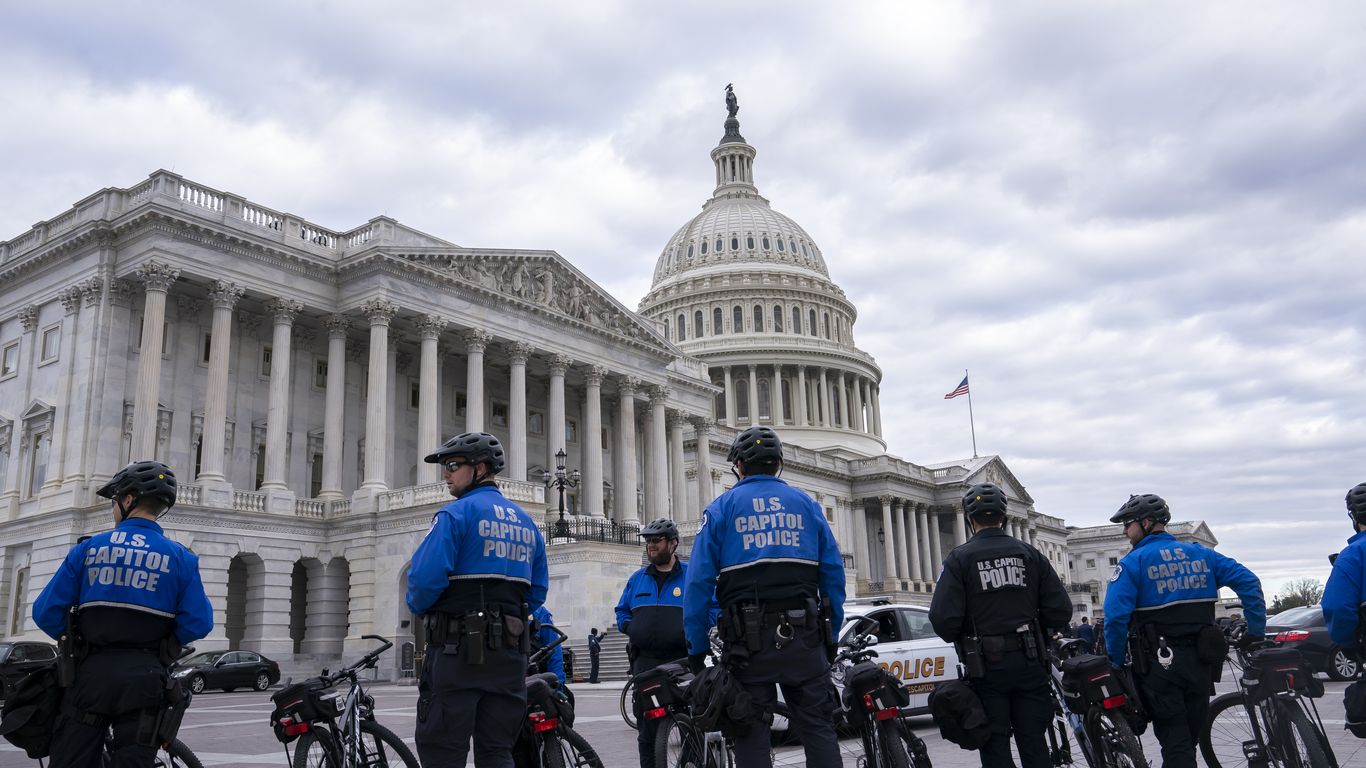The fatal shootings of two Minnesota legislators have reignited fears over congressional security, prompting urgent calls for enhanced protection measures. As lawmakers grapple with the vulnerability of rank-and-file members, the tragic events have sparked a nationwide debate on how to safeguard elected officials.
Congress’ fight over security erupts after Minnesota shootings

Key Takeaways:
- Renewed Security Concerns: Shootings targeting Minnesota legislators have reignited fears about the safety of Congress members.
- Fatal Attacks on Lawmakers: Melissa Hortman and her husband were killed; John Hoffman and his wife were hospitalized.
- Suspect’s Broader Targets: The assailant had a manifesto listing other Democratic lawmakers and abortion rights advocates.
- Calls for Enhanced Protection: Lawmakers are pushing for increased security measures, including personal details and home safeguards.
- Leadership Responses and Actions: Congressional leaders are scheduling briefings and considering proposals to improve member security.
Tragic Attacks Highlight Lawmakers’ Vulnerabilities
A pair of deadly shootings at the homes of Minnesota state legislators have sent shockwaves through Capitol Hill, reigniting longstanding debates over the personal security of Congress members. The incidents, which occurred early Saturday, have left lawmakers grappling with fears of unanticipated attacks and the adequacy of existing protection measures.
The Minnesota Shootings
Minnesota House Democratic Leader Melissa Hortman and her husband were fatally shot at their home, a tragedy that was soon compounded by a second attack on Democratic State Senator John Hoffman and his wife, who were both hospitalized with gunshot wounds. Authorities have identified the suspect as 57-year-old Vance Boelter, who was allegedly disguised as a police officer and driving a vehicle resembling law enforcement.
A Broader Threat
Investigators revealed that Boelter possessed a “manifesto” listing other Democratic lawmakers and prominent abortion rights advocates, suggesting a broader intent to target political figures. The revelation has intensified concerns among legislators about their safety, especially in light of increasing political polarization and public hostility.
Lawmakers Voice Fears
“We’re just as exposed as [Hortman] was. We have no more security than she does,” expressed Rep. Jared Moskowitz (D-Fla.) in an interview with Axios. “Things have changed. And as Congress becomes less functional in general, we can’t even function to keep ourselves safe.”
Rep. Bennie Thompson (D-Miss.), the ranking member of the House Homeland Security Committee, echoed these sentiments. “I call on the Capitol Police to assist in providing real solutions for increased security for members,” he stated, emphasizing the need for cooperation and resources from leadership.
Demands for Enhanced Protection
The alarming incidents have prompted rank-and-file members to renew calls for increased security measures. Proposals include providing personal security details, enhancing safety protocols at lawmakers’ homes and during transit, and implementing stringent measures to protect sensitive personal information.
House Republicans held a call to discuss these concerns, with several lawmakers urging leadership to allocate more resources toward individual member security. However, some expressed skepticism about the responsiveness of leadership, with one GOP lawmaker noting, “I don’t think so. Nothing’s changed.”
Leadership Responds
Senate Minority Leader Chuck Schumer (D-N.Y.) has requested increased security for Minnesota Senators Amy Klobuchar and Tina Smith. Similarly, House Minority Leader Hakeem Jeffries (D-N.Y.) called on security officials to “ensure the safety of our Minnesota delegation and Members of Congress across the country.”
The U.S. Capitol Police acknowledged awareness of the violence targeting state lawmakers in Minnesota and confirmed collaboration with federal, state, and local partners, though they declined to provide further details.
Upcoming Actions
To address the growing apprehension, Jeffries is set to host a virtual briefing on member security. “Our colleagues are scared,” a senior House Democrat conveyed to Axios. “They want their addresses hidden and regular security updates and won’t be silenced.” There is a mounting push within the party for rank-and-file members to receive their own security details.
Rep. Moskowitz has indicated he may force a House vote on holding a “secret session” to facilitate candid discussions on security without public scrutiny. Such a session would allow lawmakers to debate sensitive information on the House floor privately, a measure rarely employed in congressional proceedings.
A Call for Immediate Action
The tragic events have underscored the urgent need for comprehensive solutions to protect lawmakers amid an increasingly volatile political climate. As Congress deliberates on the path forward, the safety of those elected to serve remains a paramount concern.
Conclusion
The attacks in Minnesota have brought to the forefront the pressing issue of congressional security. With rank-and-file members feeling increasingly vulnerable, there is a concerted effort to implement measures that ensure their safety. The events have catalyzed a critical conversation about the responsibilities of leadership and law enforcement in safeguarding democracy’s representatives.











